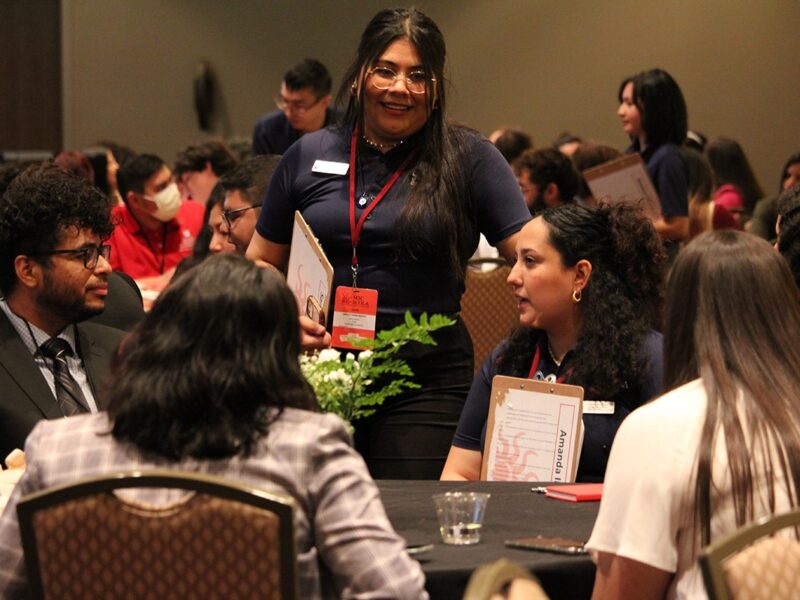Are Latino Males Succeeding In Higher Education?

As a first-generation Cuban immigrant, Luis Ponjuan knows firsthand the challenges minorities face in higher education. Many minority students are first-generation college students and do not have the guidance from parents about the college experience, he notes. In 2014, 75 percent of Hispanics graduated high school but just 15 percent graduated college with a Bachelor’s degree or higher.
Ponjuan, associate professor of higher education administration, came to the United States as a child with parents who did not speak English. Thanks to teachers and others who served as mentors along the way, Ponjuan received his Ph.D. in Higher Education and has been a professor at Texas A&M for four years. He is now using his story to advance the conversation about Hispanic males in higher education.
Ponjuan co-authored Ensuring the Success of Latino Males in Higher Education: A National Imperative. The book, a culmination of years of research from scholars across the country, is the first to specifically focus on Latino males in higher education. It includes 12 chapters detailing theories, research and practice.
The hope is this book opens new discussions, on a local and national level, about what can be done to address the growing demographic and the struggles Hispanic males face in higher education, Ponjuan notes. “It’s important because folks across the nation are looking at the state of Texas and Texas A&M to understand and think about how this issue is being addressed,” he said. “This book is a first step in providing, beyond a journal article, a very comprehensive understanding of what’s being done.”
Three Texas A&M faculty members were involved, including Dr. Linda Castillo, professor of counseling psychology. Her chapter focuses on the role of family in academic persistence. “This book starts a national dialogue on why this problem is occurring,” said Dr. Castillo. “Educational leaders and policy makers need to have a national discussion on what works, what doesn’t and what changes need to be made in our educational system to address this growing trend of the under education of the Latino male.”
Research has shown that Hispanic males are more likely to drop out of high school, join the workforce instead of go to college or leave college before graduating. Young Hispanic males represent the fastest-growing employment pool and also the most underutilized intellectual talent pool.
Continue reading on Transform Lives.
This article by Ashley Green originally appeared in Transform Lives.





